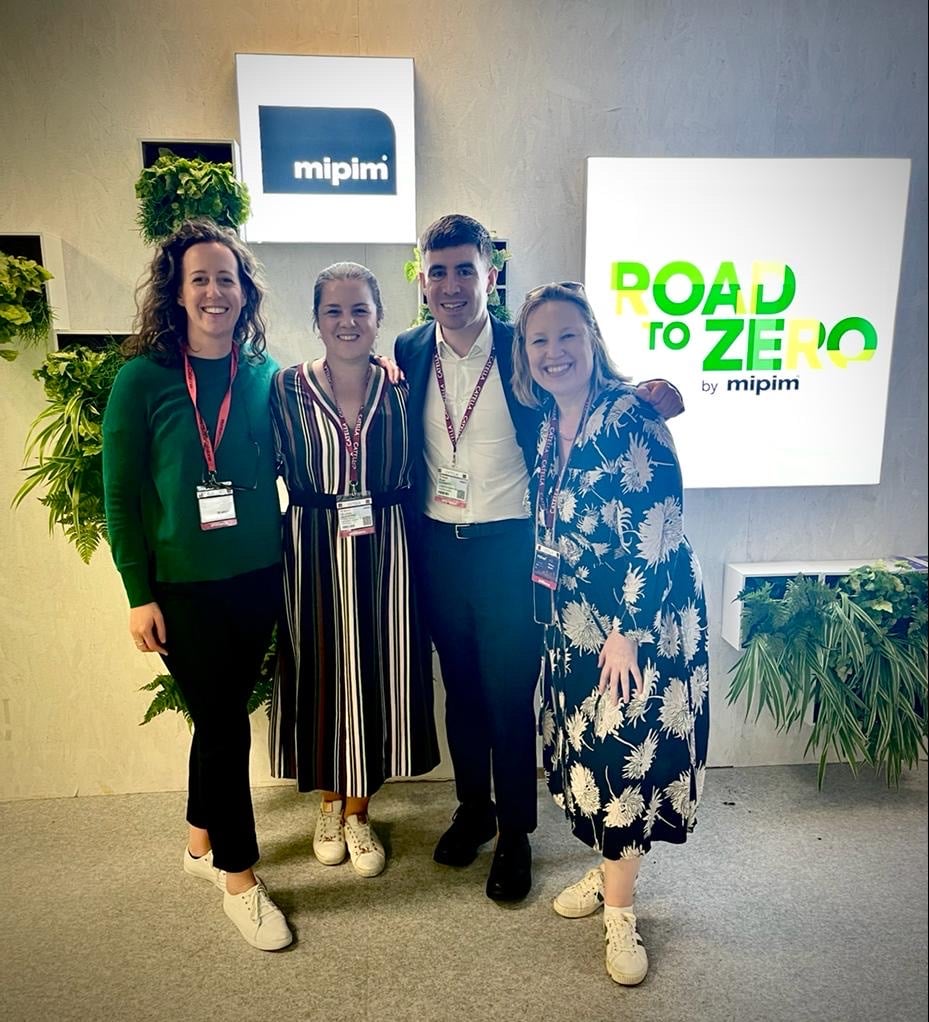
Hugh Garnett
Investor Strategies Senior Specialist - Real Assets
IIGCC was invited to co-host the MIPIM 2023 Road to Zero stage, marking the first time that sustainability had a dedicated stage at the world’s largest industry event.
Together with the Urban Land Institute, World Green Building Council, and World Business Council for Sustainable Development, the Road to Zero stage held seven events across three days in Cannes, France.
This included a closer look at investment leadership on net zero, decarbonisation in real estate, the role of occupiers and landlords in addressing energy efficiency, and looking beyond net zero to nature, biodiversity, and social issues.
A new approach
Real estate has a vital role to play in achieving the goals of the Paris Agreement – the built environment contributes around 40% of global emissions today.
The recent UN IPCC Sixth Assessment Synthesis Report reiterated this message, highlighting that lowering the energy consumption of buildings could reduce energy demand by 60% by 2030.
But as is so often the case, investors outlined the challenge of sourcing high quality data. They explained that this is especially true of tenant data, which would help to better understand and measure true operational emissions from their portfolios.
Alongside this, embodied carbon continued to fuel discussions. This approach measures emissions generated at the manufacture stage including all materials, as well as any refurbishment, through to eventual demolition and recycling.
With that in mind, net zero committed investors and the wider real estate industry are increasingly taking a whole life carbon approach – measuring emissions across the entire lifecycle of a building.
For most this is a new approach which requires new skills and expertise. Speakers stressed the need for more supportive regulation to level the playing field and to avoid penalising early adopters of the methodology.
Carbon pricing, which sets an internal cost on carbon emissions, was also identified as a key driver for decarbonisation within real estate portfolios.
Moving together
Conversations then turned to the just transition, which calls for workers and communities to be protected as industries evolve to ‘greener’ practices.
Investors play an important role in facilitating this shift, and speakers agreed that they should consider the social element within their investment strategies, advocating for more sustainable and just cities in the future.
One issue which will need more attention is the impact of real estate on nature and biodiversity – a growing topic for institutional investors.
The industry and its financiers must balance the need for more homes and buildings together with the impact that this has on ecosystems and the environment.
While there is still a long way to go in decarbonising the built environment, it’s clear that this is an issue that real estate must address.
Radical collaboration
Importantly, despite the maturity of conversations, many investors are still at the early stages of their net zero real estate journey. Radical collaboration across the value chain will be essential to meet decarbonisation goals.
With that in mind, we look forward to working with our members and dedicated real estate working group to broaden understanding in the year ahead.
If you’d like to take part in our working groups and be the first to see insights and analysis, why not speak to our investor relations manager today to find out more about becoming a part of IIGCC.